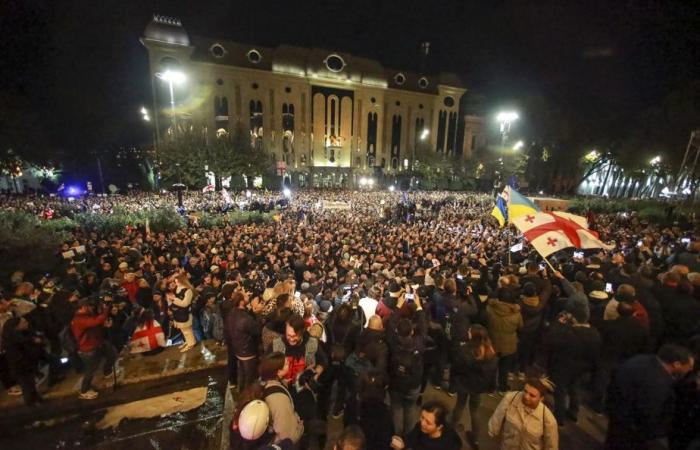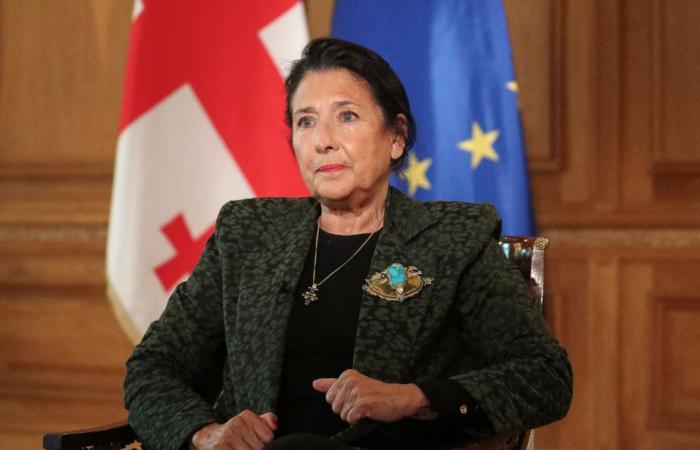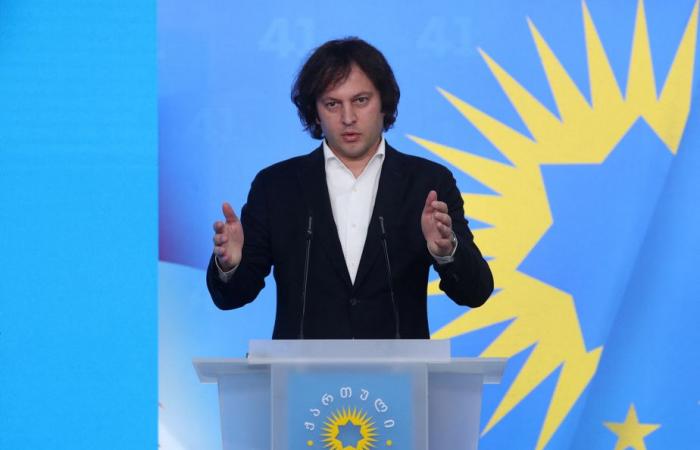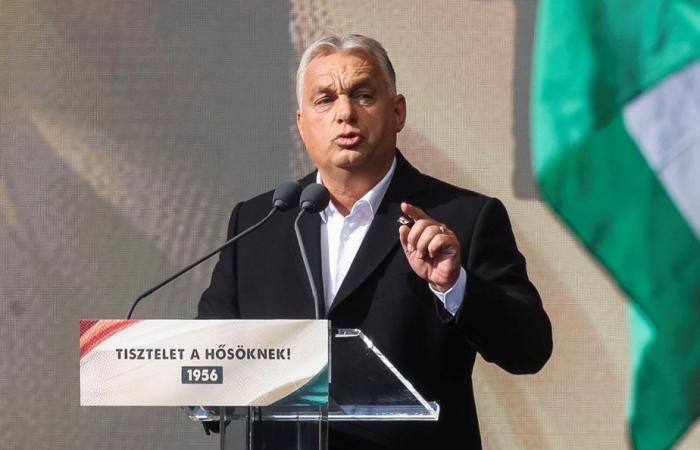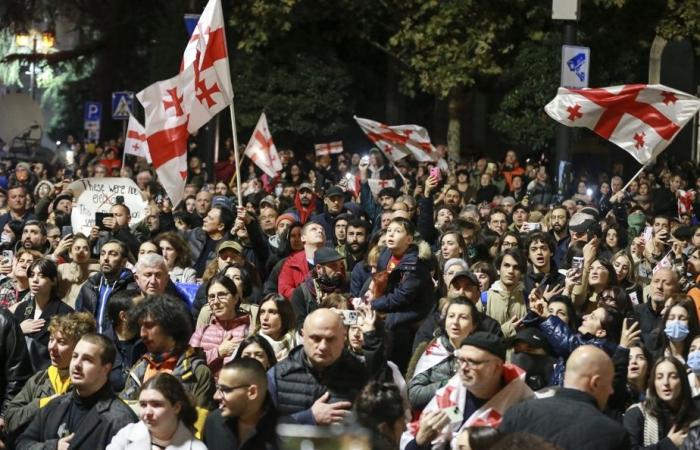(Tbilisi) Thousands of Georgians demonstrate Monday evening in Tbilisi at the call of the pro-European opposition to denounce legislative elections “stolen” by the government, which Hungarian Prime Minister Viktor Orban went to support there, despite the criticism of the European Union.
Published at 6:30 a.m.
Updated at 1:15 p.m.
Romain COLAS
Agence France-Presse
The crowd gathered in front of the Parliament building, in the center of the capital, two days after a vote won by the ruling Georgian Dream party, accused by the opposition of having engaged in a pro-Russian authoritarian drift and of move Georgia, a former Soviet republic in the Caucasus, away from the prospect of membership in the European Union and NATO.
Shortly after 8 p.m. local time (12 p.m. Eastern), there were some 20,000 of them, some waving Georgian and European flags, according to AFP journalists present.
In an interview given to AFP on Monday before the demonstration for which she also called, Georgian President Salomé Zourabichvili, breaking with the government, estimated that the methods to distort the vote had been similar to those used in Russia.
PHOTO IRAKLI GEDENZ, REUTERS
The head of state, Salomé Zourabichvili
“It’s very difficult to accuse a government,” “but the methodology is Russian,” said the head of state.
The spokesperson for the Russian presidency, Dmitri Peskov, said he “firmly rejects” these allegations of interference, accusing Mme Zourabichvili of “attempts to destabilize” his own country.
The Georgian Prime Minister, Irakli Kobakhidzé, for his part assured that Tbilisi’s “main priority” remained “European integration” and “to expect a restart of relations” with Brussels, after strong tensions in recent months.
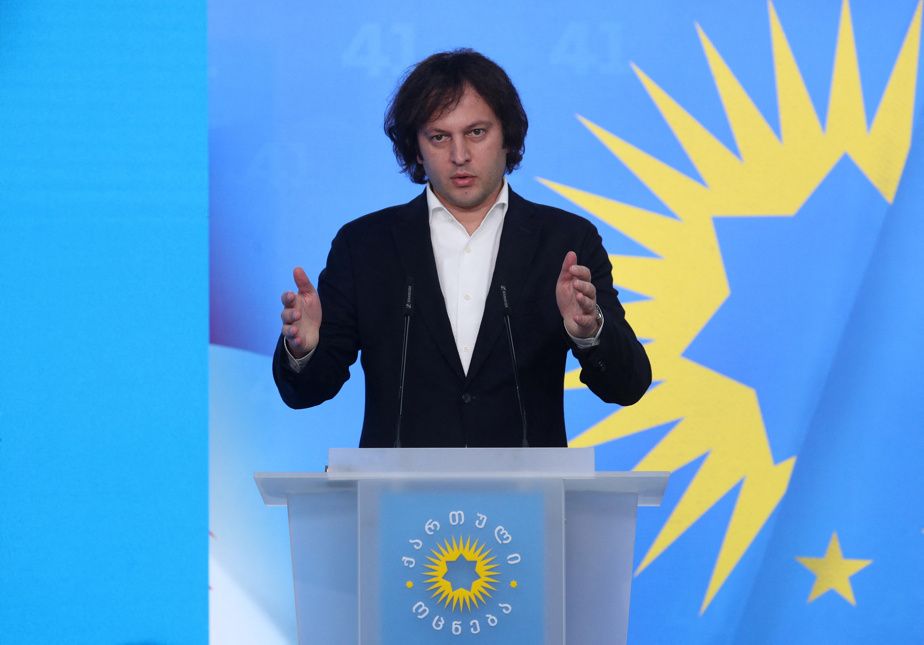
PHOTOS IRAKLI HOSPITAL, REUTERS ARCHIVES
Georgian Prime Minister Irakli Kobakhidze
“Useless sermons”
Discordant European voice, Hungarian Prime Minister Viktor Orban, close to Moscow, who quickly welcomed the “crushing victory” of the Georgian Dream on Saturday, went to Georgia on Monday evening, thumbing his nose at the EU, whose country holds the rotating presidency.
“Georgia is a conservative, Christian and pro-European state. Instead of useless sermons, she needs our support on her European path,” the nationalist leader tweeted upon his arrival.
Viktor Orban “does not represent the European Union”, had earlier attacked the head of European diplomacy, Josep Borell.

PHOTO BERNADETT SZABO, ARCHIVES REUTERS
Hungarian Prime Minister Viktor Orban
In unison with Washington, the European Union called for an investigation into accusations of electoral fraud during Saturday’s legislative elections.
According to Mme Zourabichvili, the use for the first time in Georgia of electronic voting notably contributed to such falsifications: the same identity card number was found corresponding to “17 votes, 20 votes, in different regions”, he said. she thus affirmed, also evoking more traditional methods such as vote buying and pressure.
According to almost final results, the Georgian Dream, in office since 2012, was credited Monday morning with 53.92% of the votes, against 37.78% for the opposition coalition.
Former President Mikheil Saakashvili, now imprisoned, also called for “massive demonstrations” in order to “show the world that we are fighting for freedom”.
The “solid” basis of the Georgian Dream
One of the components of the opposition, the Coalition for Change, announced that it was renouncing its parliamentary mandates so as not to “give legitimacy” to the vote.
The opposition, which had initially claimed its victory on the basis of exit polls, is now counting on the mobilization of its supporters in the streets.

PHOTO ZURAB TSERTSVADZE, ASSOCIATED PRESS
Demonstration in Tbilisi, October 28, 2024
But the Georgian Dream maintains a solid basis by effectively playing on fears of an “imminent threat of war” against Russia, notes political analyst Ghia Nodia to AFP, who expects that the power is now launching a “large-scale attack against opponents, civil society and independent media”.
Georgia was rocked in May by large protests against a “foreign influence” law, inspired by Russian “foreign agents” legislation implemented to crush civil society. But this mobilization was not enough to abandon this text.
Brussels subsequently froze the EU accession process and the United States took sanctions against Georgian officials.
Some leaders of the Georgian Dream are also very critical of Westerners. Bidzina Ivanishvili, who heads the party, called them a “global war party.”
Georgia is scarred by its defeat in a brief war in 2008 with Russia and by the threat of a new invasion, similar to that of Ukraine.
Moscow has military bases in two Georgian separatist regions whose independence the Kremlin has recognized: Abkhazia and South Ossetia.

